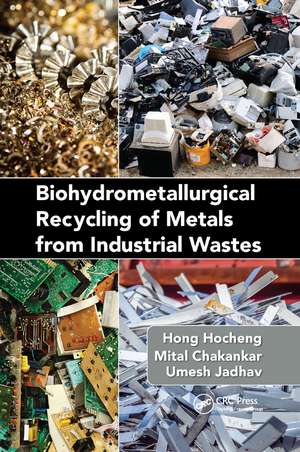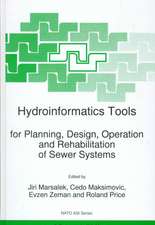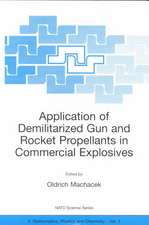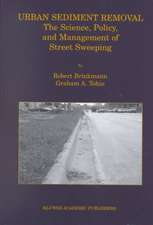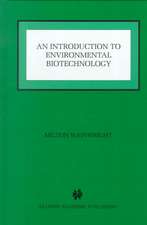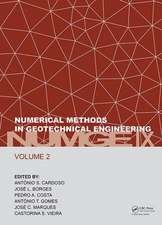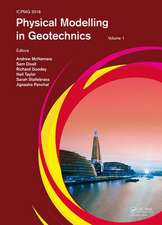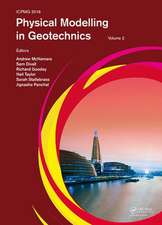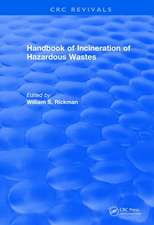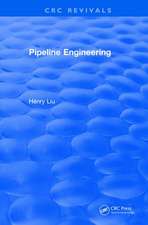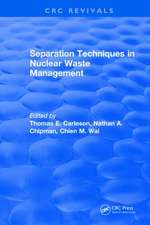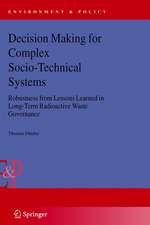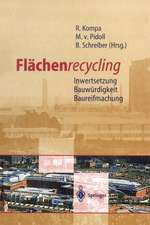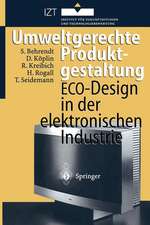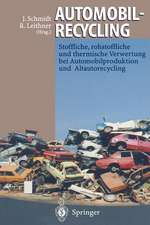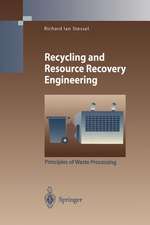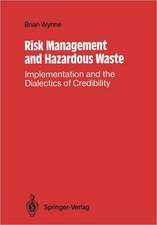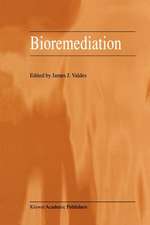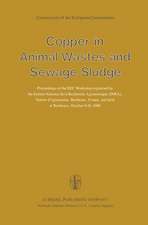Biohydrometallurgical Recycling of Metals from Industrial Wastes
Autor Hocheng Hongen Limba Engleză Paperback – 12 dec 2019
| Toate formatele și edițiile | Preț | Express |
|---|---|---|
| Paperback (1) | 410.54 lei 6-8 săpt. | |
| CRC Press – 12 dec 2019 | 410.54 lei 6-8 săpt. | |
| Hardback (1) | 1015.97 lei 6-8 săpt. | |
| CRC Press – 11 sep 2017 | 1015.97 lei 6-8 săpt. |
Preț: 410.54 lei
Preț vechi: 529.96 lei
-23% Nou
Puncte Express: 616
Preț estimativ în valută:
78.57€ • 81.40$ • 65.57£
78.57€ • 81.40$ • 65.57£
Carte tipărită la comandă
Livrare economică 21 martie-04 aprilie
Preluare comenzi: 021 569.72.76
Specificații
ISBN-13: 9780367888589
ISBN-10: 0367888580
Pagini: 226
Dimensiuni: 156 x 234 mm
Greutate: 0.45 kg
Ediția:1
Editura: CRC Press
Colecția CRC Press
ISBN-10: 0367888580
Pagini: 226
Dimensiuni: 156 x 234 mm
Greutate: 0.45 kg
Ediția:1
Editura: CRC Press
Colecția CRC Press
Cuprins
Introduction. Generation and Composition of Various Metal-Containing Industrial Wastes. Conventional Metal Recycling Techniques. Recycling of Electronic Waste. Recycling of Energy Storage Wastes. Recycling of Metal Production Wastes. Recycling of Solar Electricity Waste. Recycling of Thermal Power Generation Wastes
Notă biografică
Prof. Hong Hocheng is currently the Chair Professor of National Tsing Hua University, Taiwan, R.O.C. He received his Ph.D. from the University of California, Berkeley (1998). He completed his B. Sc. Mechanical Engineering from National Taiwan University, Taiwan, R.O.C. and Diplom-Ingenieur, Manufacturing Engineering from Rheinland-Westfalen Technische Hochschule (Aachen), Germany. He is ASME and AMME Fellow. His fields of interest are innovative manufacturing processes, nontraditional machining, micro/nano manufacturing, fatigue of MEMS, machining of composites. He has around 160 research papers published and 30 international invited paper/review article/keynotes lecture/plenary speech/awardee’s lecture/book chapter. He is a member of editorial boards of 15 international scientific journals.
Dr. Mital Chakankar received her Ph.D. in Microbiology from Department of Microbiology, Shivaji University, Kolhapur, India. She carried out research in the field of microbial production of biosurfactants, microbial degradation of pollutants, biosensors for detection of microorganisms and biomolecules. She is currently a Postdoctoral Research Fellow at Department of Power Mechanical Engineering, National Tsing Hua University, Taiwan. Her current research interests include bioleaching of metals from industrial wastes. She has published 12 research papers in international journals.
Dr. Umesh Jadhav received his Ph.D. in Environmental Biotechnology from Department of Biochemistry, Shivaji University, Kolhapur, India in 2009. He carried out research in the field of microbial degradation of pollutants, bioleaching of metals. Presently he is Assistant Professor at Department of Microbiology, Savitribai Phule Pune University, Pune, India. He is involved in the application of microorganisms for geotechnical applications He is having 31 research papers published. Also, he has 4 book chapters in his credi
Dr. Mital Chakankar received her Ph.D. in Microbiology from Department of Microbiology, Shivaji University, Kolhapur, India. She carried out research in the field of microbial production of biosurfactants, microbial degradation of pollutants, biosensors for detection of microorganisms and biomolecules. She is currently a Postdoctoral Research Fellow at Department of Power Mechanical Engineering, National Tsing Hua University, Taiwan. Her current research interests include bioleaching of metals from industrial wastes. She has published 12 research papers in international journals.
Dr. Umesh Jadhav received his Ph.D. in Environmental Biotechnology from Department of Biochemistry, Shivaji University, Kolhapur, India in 2009. He carried out research in the field of microbial degradation of pollutants, bioleaching of metals. Presently he is Assistant Professor at Department of Microbiology, Savitribai Phule Pune University, Pune, India. He is involved in the application of microorganisms for geotechnical applications He is having 31 research papers published. Also, he has 4 book chapters in his credi
Descriere
The book covers biohydrometallurgy and its application in the recovery of metals from secondary sources like wastes. It aims to provide readers with a comprehensive overview of different wastes for metal recovery and biological treatment methods that are both environmentally friendly and economically viable.
